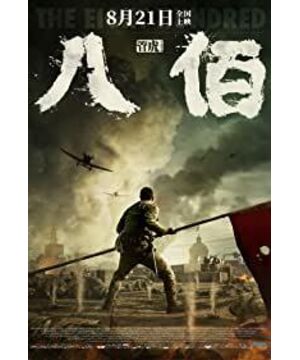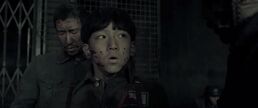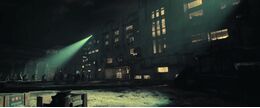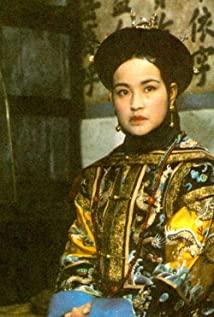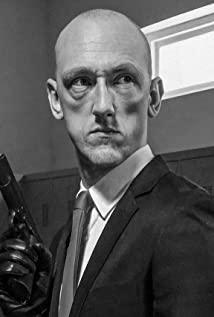The deeds of the Eight Hundred Soldiers' Bloody Battle at the Four Lines Warehouse" is one of the most shocking scenes in the history of the Chinese War of Resistance. From October 27th when the lone army was ordered to stay in Zhabei, to October 30th when they were ordered to withdraw into the concession, four tragic days. The battle made the Sixing Warehouse on the Suzhou River become the focus of worldwide attention.
In the eight years of the Anti-Japanese War, as long as the "loneliness spirit" and "eight hundred heroes" were mentioned, it was enough to make people bloody and fight high. It has become a symbol of the Chinese people's patriotism in fighting foreign aggression. To this day, this heroic history has become a cherished national memory.
The movie "Eight Hundred" adapted from this history was released on August 21, setting off a box office boom. However, this special topic does not use the popular number "eight hundred", but uses the real number of "four hundred and twenty" that has been rigorously verified by historians.
These are four hundred and twenty living lives. Even today we are 83 years apart from them. But if they take off their uniforms, you will find that these heroes admired by later generations are no different from us. They also have irritable tempers, the restlessness of young people, they also speak ill of their superiors behind their backs, and they tremble with fear when the enemy approaches.
At six o'clock in the morning on April 24, 1941, the "solitary camp" next to Jiaozhou Garden in Shanghai suddenly fell into unprecedented chaos. This was the time for the "Four Elements Lone Army" who were under house arrest by the concession authorities to hold morning exercises every day, but their leader Xie Jinyuan was lying in a pool of blood at the moment, and there was no sign of life.
Written by | Chen Xubin
1
assassinated
At six o'clock in the morning on April 24, 1941, the "solitary camp" next to Jiaozhou Garden in Shanghai suddenly fell into unprecedented chaos. This was the time for the "Four Elements Lone Army" who were under house arrest by the concession authorities to hold morning exercises every day, but their leader Xie Jinyuan was lying in a pool of blood at the moment, and there was no sign of life. Their regimental vice-chancellor, the sign, was also seriously injured with five knives.
The perpetrator is not an outsider, but a soldier in a lonely camp. There are ten people on the arrest list issued by the police authorities in the public concession after investigation: Hao Jingcheng (also known as Hao Dingcheng), Zhang Guochun (also known as Zhang Guoshun), You Yaoliang, Zhang Wenqing, Zhou Shaoshan, Zhang Baosheng, Huang Yunqing, Cao Mingzhong, Zhang Fuzhong, Jiang Shaoqing . The final verdict of the Concession Court was: Hao Jingcheng, Zhang Guochun, and You Yaoliang were sentenced to death; Zhang Wenqing, Zhou Shaoshan, and Zhang Fuzhong were sentenced to life imprisonment; Zhang Baosheng and Jiang Shaoqing were sentenced to nine years in prison; Huang Yunqing and Cao Mingzhong were found not guilty and released.
In the memories of the lone warrior Zhang Weiyuan, Hao Jingcheng was the main planner of the assassination. "I don't know since when, he wore a cotton coat all day long, and often strolled in front of the regiment leader's door." This kind of behavior that the cotton coat does not leave the body once aroused everyone's curiosity, but was put off by Hao Yi "playing around". Zhang described the situation on the day of the incident as follows:
"Captain Xie led the entire battalion to run for morning exercises as usual. Hao Jingcheng was still wearing his coat and ran for a lap, but he fell behind. When Colonel Xie came to ask the reason, the team ran in the opposite direction. Zhang Wenqing, You Yaoliang (who had been reprimanded by the regiment leader for violating discipline), Zhang Guoshun, etc. fell behind one after another. They also came to Hao Jingcheng. Hao Jingcheng took the opportunity to take off his coat and pulled out the three-edged thorn. Captain Xie was caught off guard. He was stabbed twice in the chest, and when he was pulled out, the murder weapon turned 180 degrees and turned blood like a fountain. He immediately fell to the ground and was dying. When the runners saw this, they rushed to rescue. It was too late. In the chaos, I have no ideas, I can only cry. The accomplices shouted that they were not dead. Hao Jingcheng turned to stab the temple, the throat, and the heart three times in a row, and died immediately."
The reporter's restoration of the incident after interviewing the soldiers of the lonely army camp is basically the same as Zhang's description, but there are some differences in the details. For example, Zhang Weiyuan said that the murderers Hao Jingcheng, Zhang Wenqing, You Yaoliang and Zhang Guoshun deliberately fell behind during the run, but "Declaration" said that these murderers were absent from the morning exercise that day. Xie Jinyuan then ordered the troops to run while sending someone to the dormitory It is said that four people came to accept the face-to-face reprimand. After the four people arrived, one of them suddenly took out the weapon to attack Xie, "the other three also rushed forward to help the murderer" and killed Xie on the spot. Compare Hao Jingcheng's confession - "It was a morning exercise. Because I was late, the regiment commander scolded me harshly and punished him with a military stick. I couldn't be more angry with him, so I pulled out the bayonet I had stored in advance and stabbed it indiscriminately. There are a few knives", we can know that the statement of the "Declaration" is closer to the truth. Hao Jingcheng confessed that the murder weapon he used was a knife, and the police in the concession area also claimed that the murder weapon found from Hao was a knife. It is also known that Zhang Weiyuan’s statement that Hao’s murder weapon was a three-edged thorn was not accurate.
2
Life in a lonely camp
The trial materials released by the Concession Court after the private trial had a tendency to attribute the motive for the assassination to internal conflicts within the lone army. Hao Jingcheng said that the reason why he killed Xie Jinyuan with a knife on the same day was because after he entered the solitary camp, he was "treated by the regiment commander in various ways. The letter asked the head of the regiment to improve my treatment, but the head of the regiment refused to allow me, and imprisoned me for two months, which caused me to be very angry." The other murderer, Zhang Guochun, did not admit that he participated in the killing of Xie Jinyuan, but only admitted that he stabbed the deputy head of the regiment, Zhibiao with a knife. He said that he "fighted with the squad leader because of the private meal, and was beaten by the squad leader with a rattan stick, but since I was given military rations, I should be subject to military law, and I have no resentment. , The deputy of the Shangguan regiment came to rescue me, and I was wearing a sharp blade. Because of my daily abuse of soldiers, most of my subordinates were dissatisfied with the deputy of the regiment and stabbed him in anger for a while, but they had no intention of killing him.”
Hao Jingcheng's testimony has some similarities with the testimony provided by Shangguan Logo. Shangguan Zhibiao said, "The defendant Hao Jingcheng was detained by the head of the regiment for more than a month because he wrote an anonymous letter and was imprisoned for more than a month. Two or three days before the head of the Xie regiment was stabbed, Hao was caught by the person in charge for stealing food from the kitchen. , Hao Hao refused to accept it and beat him again, so he was whipped with a cane by the head of the regiment. It can be seen from this that Xie Jinyuan did punish Hao Jingcheng.
However, Hao Jingcheng wrote an anonymous letter accusing Xie Jinyuan of not disclosing the donations made by Shanghai citizens to Gu Jun, which is not true. Hao was probably misled by misinformation. From 1938 to 1939, when the Solitary Army's reputation was at its peak, some bad elements in Shanghai accepted donations under the name of the Solitary Army. After such information was introduced into the Solitary Army Camp, it inevitably caused some discussion. In order to prevent this kind of problem, Xie Jinyuan published a notice in the "Declaration" in November 1938, which stated: "Xie Jinyuan, the head of the solitary army of the Sixing warehouse, has been recruiting outsiders under the guise of the Sixing solitary army. We specially advertised in the declaration, please don’t be deceived by the fake name of this generation, because Sixing Warehouse is alone and does not accept donations from all parties.”
However, the love for Lone Army from all walks of life did not end because of the notice of thanks, and people still came to donate money and materials from time to time. In order to show openness and transparency and to break the rumors, Xie Jinyuan then decided to set up a group of ten elected internally to manage the use of funds and materials, and to publish the donation funds and materials received on the "Declaration" from time to time for the society. Supervision from all walks of life. For example, in April 1939, the Lonely Army Camp published a list of "donations and goods from all walks of life" received "from November last year to April 16 this year" in the "Declaration". The list is divided into two categories: "consolation cash" and "donation items". The former lists thirteen donations in detail, with specific donors, donation dates, and the amount of money. The latter cannot publish all of them due to the wide variety of items, but lists all the donors in detail. At the beginning of 1940, Xie Jinyuan published a notice in the "Declaration", saying that "in view of the past", the lonely army camp declined all outside donations, only "public and private groups donated automatically, directly delivered to the camp, and Yu personally issued a receipt and Announcement of Acknowledgements on Schedule" exception. The purpose of sending it directly to the camp is for all the lonely soldiers to witness with their own eyes; the purpose of issuing a receipt and publicly thanking it in the newspaper is to accept the supervision of all walks of life. The so-called "in view of the past" probably refers to various rumors including Hao Jingcheng's anonymous letter.
As for Hao Jingcheng's so-called improvisation after being reprimanded, Zhang Guochun's so-called intention to kill Xie Jinyuan can only be interpreted as a kind of exculpation. After the incident, the police in the concession area seized a sharp knife from Hao Jingcheng, Zhang Guochun, and Zhang Wenqing each, and an iron rod from You Yaoliang. These four were the main culprits who assassinated Xie Jinyuan. The four main murderers all carried the murder weapon with them when the crime happened, and combined with Zhang Wenqing's confession - "A knife was tied to me at 10:30 overnight, and Zhang Guochun handed it over to me to assassinate the regiment leader"; Zhang Fuzhong's confession - "Hao Jingcheng a few months ago That is, he has the intention to assassinate the head of the regiment, and after I tried to persuade him not to commit it, I have no knowledge of this incident." It can be confirmed that this was a deliberate action, and it was definitely not a temporary anger.
According to the explanations of the murderers, the reason why they hid the murder weapon collectively was to escape from the solitary camp. Zhou Shaoshan said that he did not know there was a plan to kill the head of Xie, but he only admitted that he "talked to Zhang Guochun about trying to escape from the barbed wire and escape from the solitary camp", and said that he handed the knife to Zhang Guochun for the purpose of escaping. . Zhang Guochun said, "Because the treatment in the solitary camp was too hard, (I) discussed with Zhou Shaoshan, Zhang Baosheng, Zhang Fuzhong, etc., and ran away without permission. I was afraid of being hindered, and I kept a secret weapon in my body."
For the soldiers, the solitary camp is indeed a humiliating existence at all times. The troops were ordered to retreat into the concession, originally "on the basis of the resolution of the Shanghai Consular Corps", and "on the order of the highest commander". Guess expected to be disarmed and placed under house arrest by the Ministry of Industry of the Concession after he retreated. The Ministry of Industry's explanation is that the interests of the concession must remain neutral, and neither the "extradition" of the lone army can be done at the request of the Japanese army, nor the release of the lone army at the request of the Japanese army. This explanation seems plausible, but in fact it cannot withstand scrutiny at the legal and factual levels. Xie Jinyuan made it clear in his letter of protest to the Ministry of Industry and Commerce that according to international law, a lone army is neither a prisoner nor a prisoner. The concession authorities called the lone army camp a "forbidden camp", which can also illustrate this point. The "Declaration" also pointed out that in the early days of the Battle of Songhu, "a part of the Japanese soldiers retreated into the concession", and the Ministry of Industry and Bureau neither handed over their weapons nor placed them under house arrest. The concession authorities replied to Xie Jinyuan that "there is nothing we can do at the moment", which shows that the essence of their house arrest is to avoid the pressure of the Japanese army.
In addition to major vicious incidents such as interfering with the flag of the lone army and the Belarusian soldiers killing and wounding the soldiers in the camp for no reason, various trivial matters in the daily control often arouse the indignation of the lone soldiers. For example, the Luo Song guards guarding the gate beat the soldiers in the camp, just because the soldier closed the camp door when he sent the students who came to condolences out of the camp. Two representatives of local groups in Shanghai came to the camp to ask what the Lone Army lacked in daily necessities, but they were forcibly dragged out by the guards while they were talking. There was also a strict limit of up to 25 visitors entering the camp for condolences. More than 30 girls from a certain school came to visit, and even one more guard was unwilling to accommodate. Performing groups enter the house to offer condolences, and the content of the performance must be checked in advance, and content of agitation nature is not allowed.
In March and April of 1939, after 18 months of house arrest, the Soldiers' runaway event finally occurred in the lonely camp. The first time was at midnight, and one person was lost; the second time was unknown, and three people were lost. The concession authorities immediately tightened control over the solitary camp, including heightening the barbed wire, restricting the opening of the gates leading to the football field at 6 o'clock in the morning and evening, searching the body of those who came to condolences and counting the entry and exit points, and all sick soldiers were sent to the patrol hospital for treatment. Escape prevention, etc.
3
ban by motion
Xie Jinyuan can quite understand the soldiers' unwillingness to stay in the lonely barracks for a long time. But as a lone leader, he had to express his opposition to violence and running away late at night. Around 1939, some powerful people in Shanghai approached the solitary army camp. They also proposed a method of "breaking the whole into pieces". Refugees pretended to be visitors to enter the camp for condolences, and quietly replaced the solitary soldiers in batches. In this way, soldiers can return to the front lines, and refugees can find a place to live. The plan was also rejected by Xie. Zhang Weiyuan later recalled that Xie's veto was obeyed by all officers and soldiers, but obedience did not mean consent: "All officers and soldiers of the Lonely Battalion remained silent on the question of whether to replace Colonel Xie, but a few had other ideas. The reason is that instead of being placed under house arrest in the camp and waiting to be killed, it is better to get out of Shanghai to the guerrilla zone, regain strength and then go to the front line to fight against Japan. Only buried in the bottom of my heart."
Xie Jinyuan is actually in a dilemma. He himself was eager to restore his freedom, but at the same time he did not want to do anything that would damage the "revolutionary soldier's character" and "the honor of the nation and the nation". He didn't want to be accused of lone soldiers exchanging freedom for innocent refugees, and he didn't want to let the lone army clash with the armed forces in the concession—that was something the Japanese army was happy to see. In the tangle, Xie also considered various plans to jump out of the barbed wire, but "every time I report to the superior, I can't get approval." Xie regards obeying orders as a soldier's duty, and can only press such plans one by one. All he can do is to keep protesting to the concession authorities and try to improve the boring life under house arrest in the solitary camp.
The specific measures generally include two aspects. The first is to carry out various cultural, sports and entertainment projects. Basketball is the most popular. There are often 50 or 60 people among the more than 300 people. There are 5 teams in the camp, which are called Lone Army, Attack, Scout, Assault and Charge. Students and social groups who come to the camp to offer condolences often organize basketball teams to compete in friendly matches against lone teams. "Xie Jinyuan's Diary and Notes" published in 1945 included 161 diaries written by Xie during his solitary camp, 66 of which were related to sports in the camp, and recorded 22 games between the solitary basketball team and basketball teams from all walks of life in Shanghai. .
The second is to carry out craft production so that the soldiers have something to do to increase their income and improve their living standards. At the same time, it also allows the soldiers to master a skill so that they can return to society smoothly after the end of the Anti-Japanese War. The undertaking began in the second half of 1939. The first started hosiery industry, with the help of Shanghai entrepreneurs Rong Desheng, Wu Kunsheng, Wei Juxian and others, Gujunying was able to purchase cotton yarn and hosiery machine at a preferential price, and invited the hosiery factory master to teach the technology, and started Production of long socks. In early 1941, the "Declaration" published an article reporting that the "Lone Army" brand of socks, woolen socks, soap, woodware and rattan ware had a good market in Shanghai. Oral reputation". The specific production situation is as follows:
"The soldiers in the battalion are currently working four hours a day, and the workshops are working eight hours a day, divided into two shifts. The solitary industry is divided into three groups: (1) sock knitting groups. Last year, the number of sock knitters among the lone soldiers was the largest, accounting for One-third of the entire camp has about 100 new socks machines, producing dozens of socks of various sizes every day. Last year, it sold about 1,500 dozen, including 32 pairs of double-thread socks. The most widely sold. (2) Soap group. Participating in soap workers accounts for one tenth of the whole camp, second in size to the socks group, and the output is twice as high. Last year, the soap sold more than 30,000 pieces. (3) Rattan and woodware group . There are fewer people."
4
"Extremely Distinctive"
After the trial in the Concession Court, the acting head of the regiment, Lei Xiong, refuted the confession of the murderer disclosed by the concession authorities through Zhengyan Daily, saying that "the regiment leader paid the most attention to the nutrition of the soldiers during his lifetime". "The so-called bad treatment and lack of food are all fabrications. Moreover, the economic accounts in the solitary military camp have always been open to the public. Not only are the details published on a monthly basis, but there is also an internal "economic committee" to supervise them. In the end, Lei Xiong said, "The four rebels committed the rioting behavior, obviously because they are very sincere," implying that they may have been bought by the Japanese army. The three squad leaders in the camp, Yu Changshou, Li Jintang, and Cao Mingzhong, also had similar suspicions. The reason was that the weapons of the solitary camp had been confiscated by the concession, and even the kitchen knives had to be registered. It's not a camp thing at all." They believe that someone may have deliberately entered outside the camp and brought the murder weapon to Hao. Zhang Yinglu, a soldier who had more contact with Hao, said that Hao had been promoted several times in the lonely army camp in three years. Because of his middle school education, Xie Jinyuan "treated him well and asked him to help the Lone Army Theatre Troupe." The long dagger was brought in when the troupe was transporting props from outside, and the Belarusian soldiers didn’t care, and we didn’t think so deeply when we saw it.” Zhang Yinglu also mentioned that in 1940, after the Wang puppet sent people to buy the Lone Army and was rejected by Xie Jinyuan, Hao began to promote the "Equivalent Law" with some people who could talk to him in the camp, "advocating 'don't have any bosses', take care of yourself, Do what you love."
However, no matter how deeply skeptical the soldiers in the isolated army were, the public concession, which had become an isolated island, was powerless to provoke the Japanese army. The police will neither follow the source of the murder weapon to conduct a further investigation, nor will the court involve the Japanese army and Wang Puppet. However, since the intelligence materials written by the police department of the French consulate in Shanghai contained "It is said that the Social Movement Steering Committee ... took advantage of the opportunity to hold football and sports games in the camp to successfully bribe four soldiers to kill Xie Jinyuan. The content of the reward is 10,000 yuan", and Xie Jinyuan's diary also has records such as "Zha Liu Yulong was arrested for the former China, and now he is a traitor, and he comes to the camp to play football from time to time." The murderer is not an impossibility of imagining. For the Japanese army, the solitary army under house arrest is a kind of existence like a stick in the throat. They read and read newspapers to exercise, held "spiritual flag raising", engaged in production and self-reliance, and often made reports and exchanges with the people who came to visit and condolences. sustenance. This was something the Japanese army did not expect when they initially refused to allow the concession authorities to release the Lone Army. Today, it is impossible to ignore the concession to release the lone army, and it is impossible to ignore the lone army to continue to maintain a spiritual symbolic existence. It is the last resort of the Japanese army and the Wang puppet to force Xie Jinyuan, the leader of the lone army, to submit or kill him.
The assassination of Xie Jinyuan shocked the whole country, and more than 100,000 people took the initiative to go to the solitary camp mourning hall to offer sacrifices. On the day of the funeral, more than 40,000 people from Shanghai came to see him off. But Xie's death did bring a huge shock to the lonely army. Zhang Weiyuan recalled that the hearts of the lonely people have been "somewhat disorganized" since then. Soldier Dang Rongjie "climbed on the back of the car and climbed the fence in the name of repairing the car, jumped over the barbed wire at the top of the wall, and jumped on Jiaozhou Road." When I arrived at Jiaozhou Park, I also mixed in with the tourists." Another soldier and Daosheng also "mixed in with the guests in plain clothes and left the camp at dusk."
5
drifting years
Eight months later, on December 7, 1941, the Japanese attacked Pearl Harbor. The next day, the Japanese army in Shanghai entered the public concession. The fate of the lonely army took a turn for the worse. They first rejected the inclusion of Wang Puppet, and then at the end of December they were closely monitored by the heavily armed Japanese army, cutting off all contact with the outside world. About a week later, the Japanese army used force to relocate alone. On a snowy day, they used more than a dozen trucks to transfer them to the suburbs of Shanghai, cutting off the spiritual support they had with the people in the city for many years. Later, the Lone Army was transferred to a concentration camp with a high-voltage power grid in Yuepu Town, Baoshan County. Here, Wang Puppet's lobbying for incorporation failed again. In 1942, when the wheat seedlings were tall and the rapeseed was in full bloom, the lonely army was transferred to the "Longyoumin Art Institute" to build and dig trenches on both sides of the railway. Perhaps worried about the secret approach of the anti-Japanese organization, the Lone Army was transferred to the more tightly controlled Tiger Bridge Prison in Nanjing, where it was then used as coolies for scattered use. A small amount was retained by the prison, and most were sent to Xiaolingwei, Guanghuamen, Hangzhou, Wuhu Yuxikou, and New Guinea in Nanze. Many died of disease and heavy labor.
At the end of 1942, part of Xiaolingwei's solitary army escaped when the power grid was not energized and traveled thousands of miles back to Chongqing. The lone army digging coal at Yuxikou, under the planning of the original head of the regiment Lei Xiong and others, "mobilized everyone to snatch all the weapons of the seven escort enemy soldiers - a light machine gun and six rifles. The prisoners (90 of them alone) escaped from the tiger's mouth." There are many lonely soldiers in other parts of the country who have successfully escaped. The only ones who have no chance of escape are those who are transported to New Guinea in the South Seas. Tian Jitian recalled that they were forced to "cut down trees, beat stones, burn lime, and transport coal" in Nanyang, and the Japanese "whip and punch if they were unhappy... If they resisted, they would be stabbed to death with a bayonet."
In August 1945, the Japanese surrendered and won the war of resistance. In the same month, the former deputy chief of the Lone Corps, Zhibiao, was ordered to come to Shanghai to shelter and resettle the former members of the solitary army who were homeless. Shangguan Zhibiao published an article in the "Declaration", saying, "Today the Anti-Japanese War has been won, and Zhibiao was ordered to come to Shanghai. After Comrade Xiwuying saw the newspaper, he came to declare it as soon as possible, so that we could get together as soon as possible and discuss together. The communication office is Guba. Road No. 43." By August 31 of that year, there were more than 100 lonely soldiers who came to Shanghai from Nanjing, Wuhu and other places to return to the team.
The situation has changed, and the fate of the lonely soldiers has disappeared from the vision of the times. But when their figures came back, those suffering and perseverance, blood and tears, finally turned history into a myth and legend.
This article is exclusive original content. Written by: Chen Xubin; Editor: Gong Zhaohua; Proofreader: Zhai Yongjun. It may not be reproduced without the written authorization of the Beijing News, and you are welcome to forward it to the circle of friends.
View more about The Eight Hundred reviews


